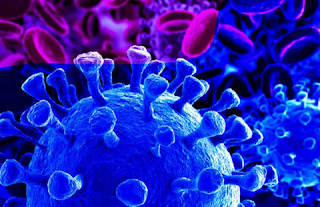Why Lagos State is epicenter of COVID-19 in Nigeria
The exponential increase of COVID-19 cases in Lagos state is inevitable as Nigeria is now firmly in the community transmission stage of the coronavirus infection.
The steady rise in the number of confirmed COVID-19 cases in Lagos state shows that it remains the epicentre for a number of reasons.
Based on the comparatively large population, congestion and intricate land mass of Lagos, enforcement of the set of interventions put in place by the Federal government to ease the lockdown has remained a major challenge.
With an estimated population of about 21 million, the control of human activity in Lagos is daunting. Experts say human activity remains a major mobility through which COVID-19 spreads across boundaries.
Lagos has recorded more than 7,000 confirmed cases which is about 45 percent of the nation’s total. Available statistics showed that in just six days (8th-13th June), a total of 1,268 confirmed cases were recorded.
According to the figures from the Nigerian Centre for Disease Control, NCDC, released on the 27th of May and 29th May, Lagos recorded a spike of 256 cases and 254 cases respectively. On the 30th of May and 11th of June, 378 and 345 cases were recorded respectively
Cumulatively, Lagos recorded 7,035 confirmed cases put at 44.86 percent of the overall national total of 15,682 cases.
With 82 deaths (21.7 per cent) of the total fatalities recorded as of 13th of June, Lagos with 5,816 active cases (57.16 percent), had 1,137 (22.3 percent) patients that had recovered and were discharged.
Sadly, despite this exponential rise in the number of cases, Lagosians have thrown caution to the wind. Many do not believe that the disease exists and a common parlance among residents is that COVID-19 is a ‘scam’.
The fact that a significant number of residents in Lagos are not complying with the protocol for easing the lockdown has remained a challenge. There is no regard for the guidelines developed by the NCDC, to stop the spread of the virus across the country. Health watchers fear that the disregard for the guidelines is fueling the spread.
Findings by Good Health Weekly show that a significant number of the residents of Lagos are poor and live in the slums and informal settlements where the practice of self-isolation is an impossible task.
The treatment of infectious diseases is challenged by general lack of access to standard hospitals, healthcare services and other basic amenities such as potable water, toilets and sanitation facilities poses vulnerability of the residents to the worst of health crises.
The prescribed hand washing protocol is difficult to maintain as a result of the scarcity of water.


Comments
Post a Comment